[IT Dong-a Reporter Joo-kyung Cha] When we buy health supplements or nutritional supplements, we value the effect of raw material content level. It is because we think that the higher the level of raw material content, the better the effect is. However, we do not consider the content level of raw material as important when buying cosmetics. It is the content level of raw material that determines the efficacy of cosmetics, but we think the kind of raw materials used is more important. In other words, we only look at the flashy names and advertisements of raw materials, and do not look at the more important content level.
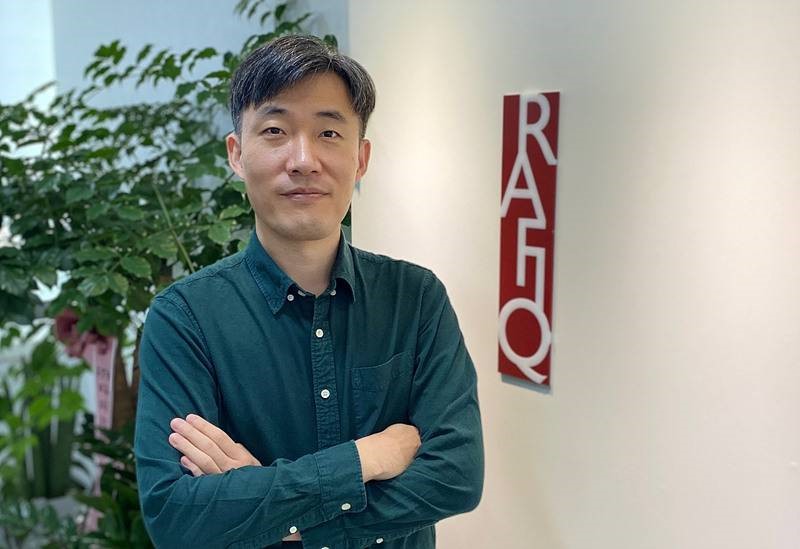
CEO Beum-joo Lee established RAFIQ Cosmetics Co., Ltd. a green bio research and development startup, to correct this misunderstanding.
Creating cosmetics that convey the originality and efficacy of plant materials with unique technology
After studying Chemical Engineering in university and Molecular Biology in graduate school, he joined a leading cosmetic company in Korea as a researcher. He dealt with the main ingredient of cosmetics- plant extracts. Plant extracts are extracted substances made by processing plants. In some cases, active ingredients are destroyed or not extracted at all during the extraction process.
CEO Beum-joo Lee was puzzled. If a plant has ingredients that are good for the skin, why use an extract instead of using it just as it is? Is there any technology that leads the skin to absorb the good ingredients of plants as they are? Furthermore, is there any technology that can bring out the hidden efficacy of plants? After researching further about this, he developed technologies that are unique to RAFIQ cosmetics: 'Plant-softening Technology (SofTech)' and 'Biotransformation'.
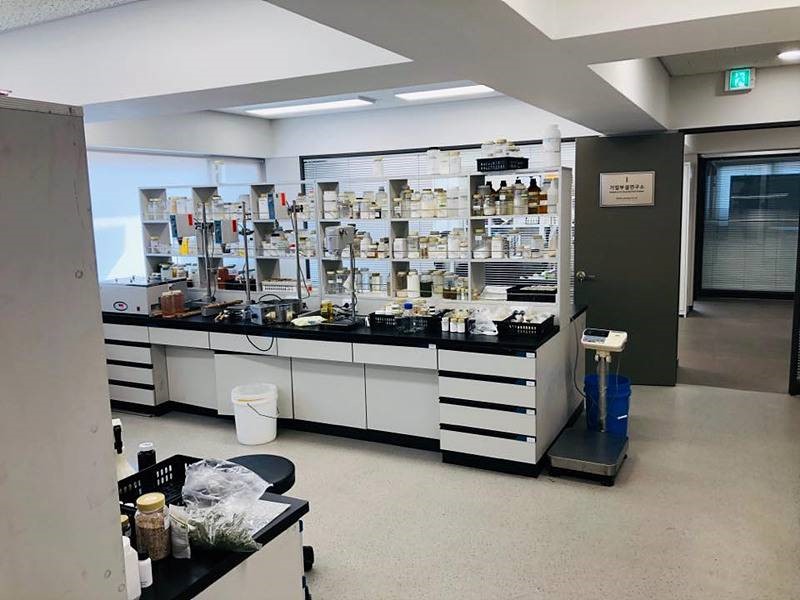
“RAFIQ's plant softening technology (SofTech) is a technology that processes plants in their original form to be used as materials for cosmetics. Take green tea as an example. Other cosmetic companies put water on top of green tea and use that water as a raw material. Green tea extract is the raw material. On the other hand, we use green tea leaves themselves as raw materials for cosmetics. Which one has the higher content level of ingredients, using water as it is or using the ingredients as they are? It's definitely the latter.
If you look at the cosmetics made by RAFIQ, the ingredients such as leaves, and petals are kept in their original shape. Just apply it to your skin. Then, naturally, it seeps into the skin like other cosmetics. How do the leaves or petals seep into the skin?
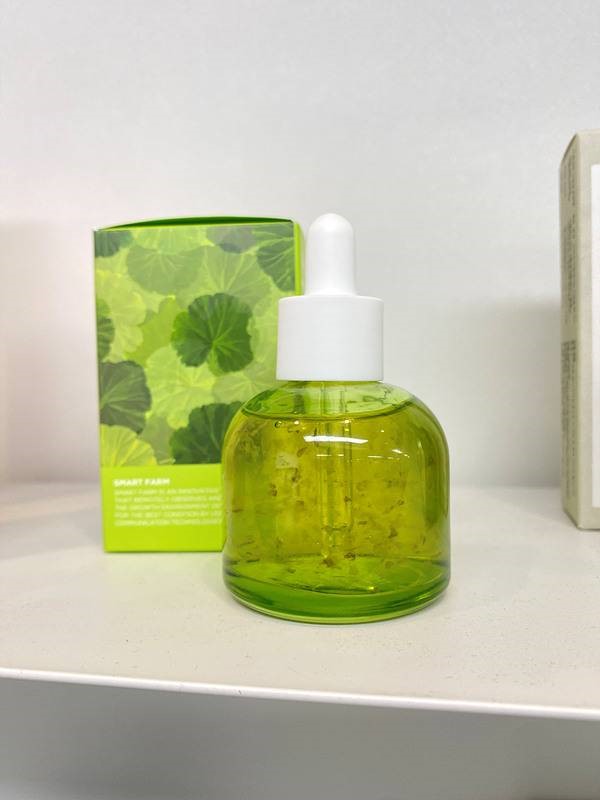
First, the active substances of plant materials are replaced with low-molecular-weight, high-active substances. If you put yeast here, the yeast will feed on certain ingredients and grow, simplifying the low molecular weight and high active substances. Next, the vegetable material is cut into small pieces so that it could break down well while maintaining its original shape. A technology that increases the absorption rate while maintaining the ingredients, this is what you call plant softening technology.
RAFIQ's second technology is biotransformation. Simply put, it is a type of fermentation. The principle of this technology is fermenting materials with microorganisms or extracting only enzymes to cause a special reaction. Then, you increase the efficacy just by simply changing the molecular structure of the active substance.
Even new effects that did not exist before are created in the process of biotransformation. Houttuynia Cordata is known as a plant with gem killing effect. Biotransformation of Houttuynia Cordata brings on a new anti-inflammatory effect. Of course, it is also possible to apply plant softening technology to biotransformed materials. Then the effect will be even better.”
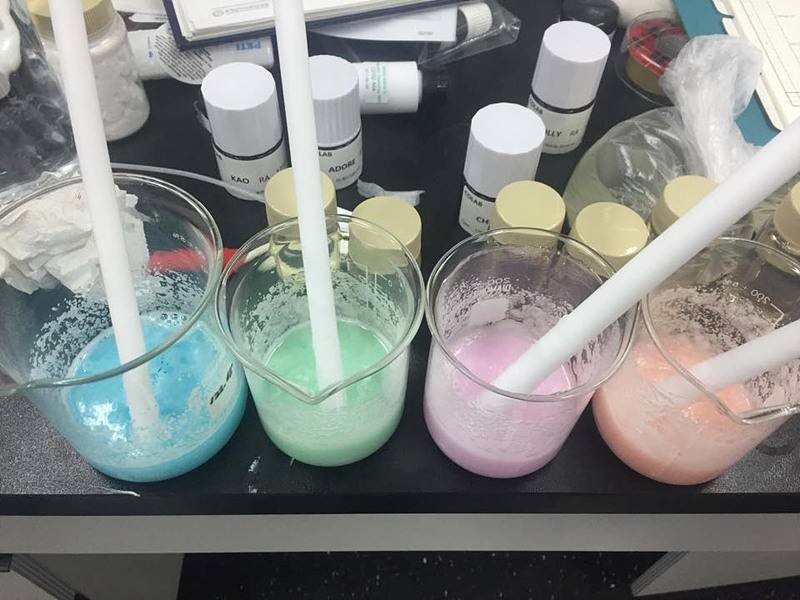
RAFIQ's unique technology, SofTech and Biotransformation, greatly increases the efficacy of cosmetics and significantly reduces the amount of material used. According to CEO Beum-joo Lee's calculations, RAFIQ uses two technologies to make cosmetics with only 4% of the original ingredients used. It is said that the efficacy of this cosmetic product is 250 times higher than that of the company's regular products.
Beer by-products lead clean beauty with natural cosmetic ingredients, leading ‘Clean Beauty’ with Corporate Venturing with OB Beer (Oriental Beer) Co
CEO Beum-joo Lee, who developed SofTech and Biotransformation technology, started researching about materials used to make cosmetics. He developed a technology that delivers the efficacy of a material to the skin as it is, and a technology that derives a new effect from the material. Here, if there is a material that has good effects on the skin and satisfies RAFIQ's corporate philosophy of green bio (eco-friendly) and upcycling (resource recycling), it would be the icing on the cake. Beum-joo Lee, who was looking for materials, suddenly saw the by-products left from making makgeolli (Korean rice wine) and beer.
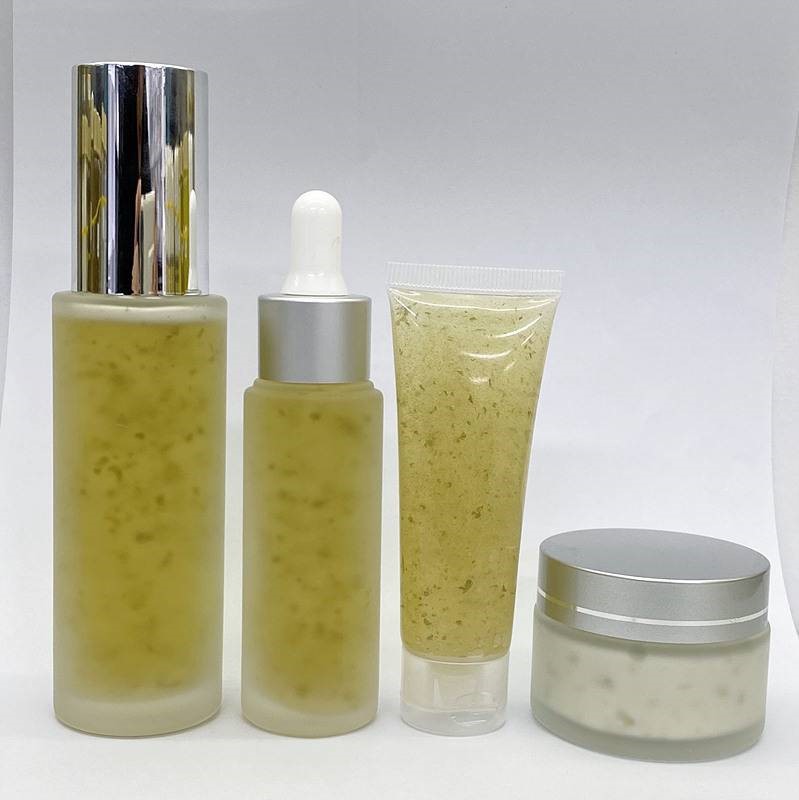
“The yeast we normally use for biotransformation is native makgeolli yeast. Then I suddenly thought of trying yeast from beer. It’s because both makgeolli and beer are made from grain fermentation. From that moment on, I wanted to work with a beer company, preferably with as many beer companies as possible. Each beer has a different yeast, so the potency will be different. The taste of beer depends on the malt, hops and yeast. The efficacy of cosmetics also depends on the yeast.
After researching about it, we discovered that beer by-products were a natural cosmetic ingredient. It has the effect of whitening the skin as well as reducing hair loss. In addition, it is also rich in yeast, making it suitable for use in SofTech. Making a shampoo that makes hair healthy and relieves hair loss came to mind.”
But another challenge came to CEO Beum-joo Lee, who already found the technology and material. He didn't have a way to source beer by-products. Of course, to get beer by-products, you have to find a big beer company. However, it was very difficult for a startup company with only experimental results and data to find a partnership with a major corporation. He said that he met his partner OB Beer on Demo Day with the help of the Seoul Startup Hub (SBA).
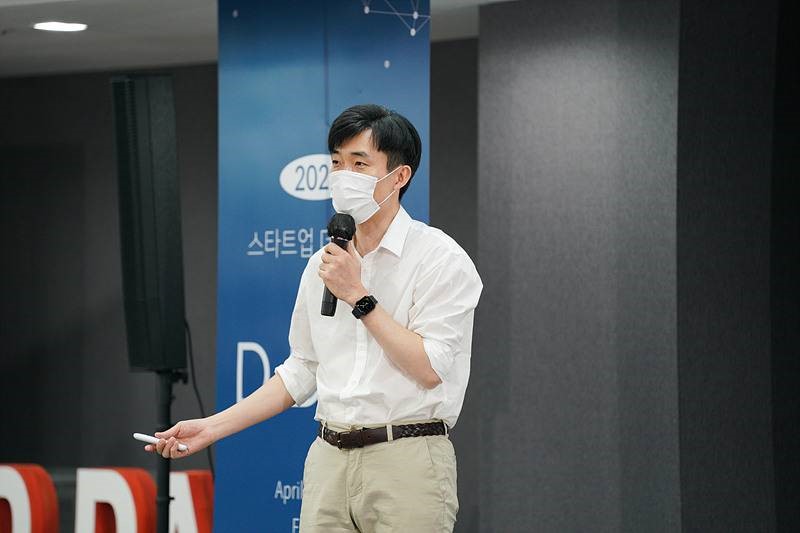
Oriental Brewery Co., Ltd. (OB Beer) is a company that is actively engaged in open innovation (trying to innovate outside the company) and CV (corporate venturing, a collaboration model between majors companies and startups). It has established partnerships with promising startups at events such as demo days and meetups.
OB Beer observed RAFIQ's technology closely on the Demo Day and finally selected it as a partner that would effectively recycle their beer by-products, which are produced by 310,000 tons per year. Of course, the glory of winning the Demo Day went to RAFIQ. It turned out that AB InBev, the parent company of OB Beer, was already paying attention to RAFIQ early on. Shortly after the Demo Day awarding ceremony, an AB InBev official asked OB Beer, “Do you know of RAFIQ Cosmetics, a startup that cleverly recycles beer by-products, based in Korea?”
“Thanks to OB Beer, we were able to experiment with beer by-products. When we made cosmetics by processing beer by-products, we were surprised at how effective it was. It suppresses melanin and has an excellent skin whitening effect. It also has the effect of replacing microplastics, making it an effective facial cleanser. There are also functional cosmetics that contain beer by-products in capsules.
Our technology recycles 100% of beer by-products, leaving no residue behind. Zero-waste recycling and completely eliminating beer by-products to make cosmetics is what you can call ‘clean beauty’. Until now, the cosmetics industry has talked about clean beauty in the sense of eliminating or recycling packaging. We want to go one step further and lead a new clean beauty that prevents wastage of cosmetic materials and recycles them instead.”
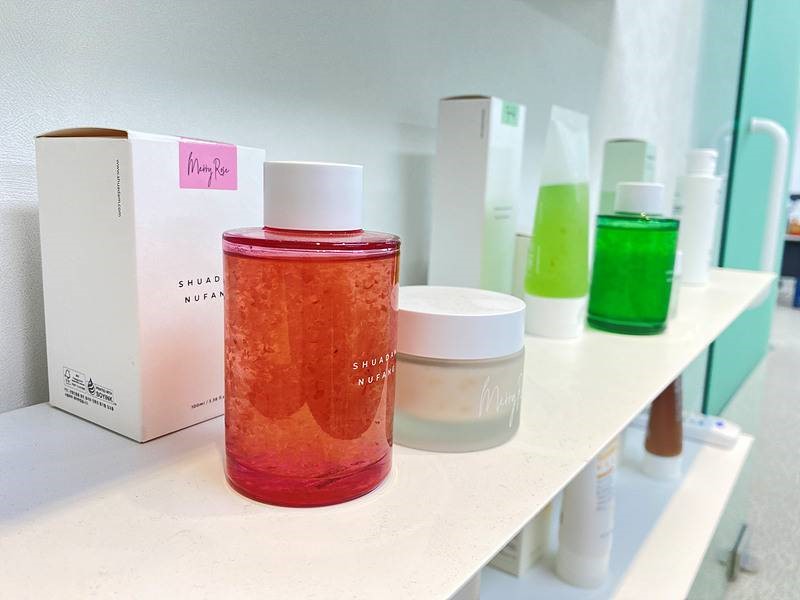
CEO Beum-joo Lee dreams of various businesses based on the results achieved through the CV with OB Beer. First of all, he plans to launch two businesses with OB Beer: ‘production of raw materials’ and ‘sales of cosmetic products’. By processing beer by-products, various functional raw materials such as extracts, scrubs (cleansing agents), and granules can be made. They are considering selling this raw material with the brand name under OB Beer. In order to receive a stable supply of beer by-products, it also signed a supply contract with AB InBev, the parent company of OB Beer. It is said that they have also received inquiries about partnerships with other beer conglomerates.
It also devotes itself to research on cosmetic materials. RAFIQ has so far found 23 plant sources. They want to increase this to 100 or more. With the concept of recycling. They are trying to make cosmetic ingredients by discovering the efficacy of plant materials that have been thrown away, such as cabbage and persimmon skins.
Seaweed is also one of the candidates. RAFIQ is currently analyzing more than 120 species of plants and algae growing on Jeju Island. They used these to make cosmetics with local specialties, and also planned a proposal to make these cosmetics into hotel amenities (convenience items such as shampoo and soap) or tourism products. Naturally, they will cooperation with local farmers. In order to receive plant materials smoothly, they are also considering connecting with smart farms.
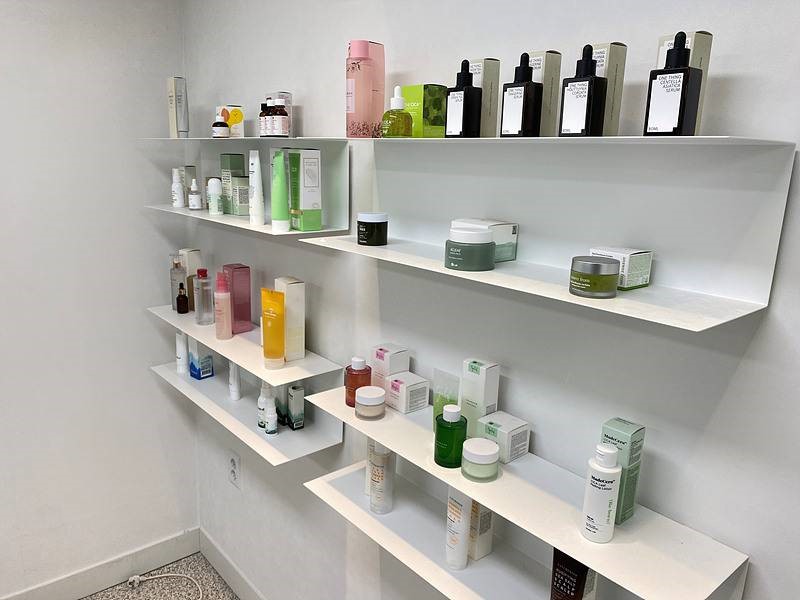
However, for the time being, RAFIQ will only operate as a B2B business that makes cosmetics and supplies them to other companies. Although, there are plans to make products for general consumers. However, as competition in marketing and PR is fiercer than anywhere else in the cosmetics market, the company only plans to target the B2C market after fully making known the advantages of their technology and their products’ characteristics.
SBA “CV is worthwhile, it will help connect startups and major corporations that care about the environment and society”
CEO Beum-joo Lee gave advice to startups dreaming of forming a CV with a large company.
“If you are a startup CEO, you probably have dreamed of collaborating with a major company at least once. However, in practice, it is difficult to do. You will not know who to contact and what procedures to follow, and you will be afraid of losing your skills or manpower to a major company. Because I was too. If so, try a proven and tested program like SBA CV. It finds CV partners for you and will serve as a communication channel in the middle.
CV is a very good program for startups. Creating results with large corporations is itself is a means of publicity. The size of your business can also be significantly increased in a short period of time. For R&D startups similar to RAFIQ, a CV will serve as an opportunity to advance their technology, discover and realize new business models that have not been considered before, and attract investment.
Startup CEOs are really busy. Technology and product development, future food discovery, company operation and publicity all have to be done by the CEO alone. The SBA CV has helped a lot in this regard, and it’s a program I’m really grateful for that has made the company leap forward.”
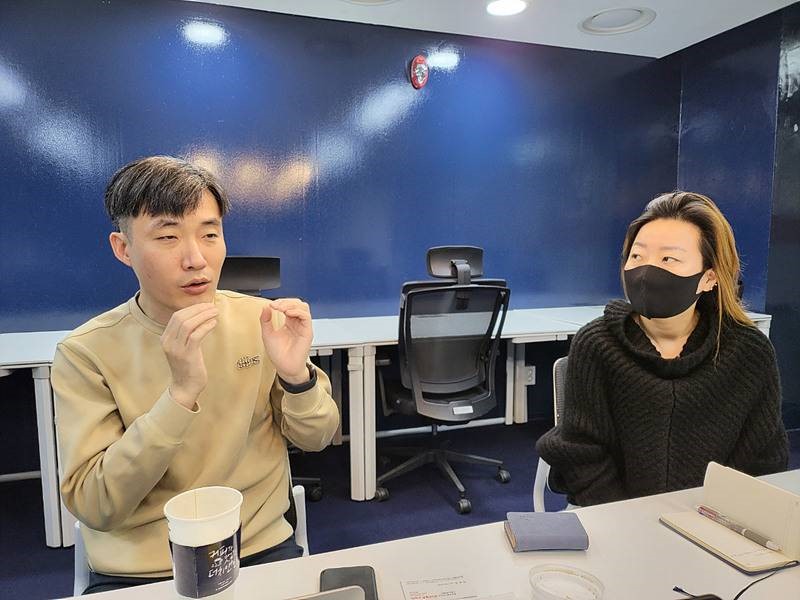
Su-jin Choi, SBA Part Leader, said that in the last month of 2021, she felt that it was rewarding to be able to create a successful CV case for OB and RAFIQ Cosmetics. At a period when ESG and corporate environmental, social, and governance factors are becoming more important, they also announced that they will try to discover more start-ups that consider the environment and society like RAFIQ, and continuously create CV cases that create synergistic effects with major companies.
